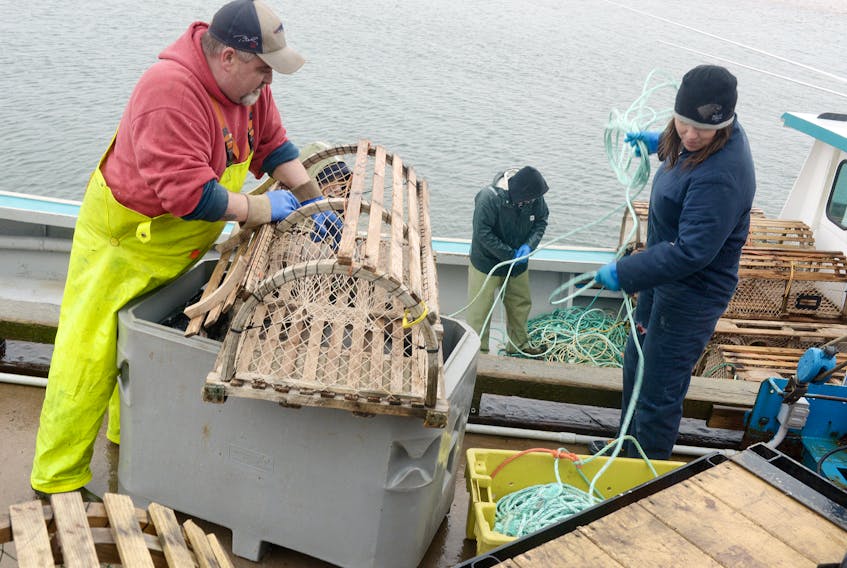BY ALAN HOLMAN
GUARDIAN COLUMNIST
Last week’s tragic accident in the waters of Northumberland Strait, off Cape Bear, in Eastern Prince Edward Island, was a reminder of the little acknowledged fact that fishing is the most dangerous occupation in Canada.
Two men were killed when a Cape Island fishing boat travelling under full power slammed into a similar boat that was stopped in the water. The Transportation Safety Board and other agencies are investigating the accident and are yet to rule on exactly what happened.
Last October, after a month-long study, Toronto’s Globe and Mail newspaper did an extensive series on workplace fatalities, and it concluded that fishing is Canada’s deadliest occupation.
In a list of 10 occupations with the highest average fatality rates during the years between 2011 and 2015, three of the top six categories were part of the fishing industry.
The fatality rate for deckhands on fishing vessels averaged 77 deaths per 100,000 workers, for fishing captains and fishermen/women the rate was 57.5 per 100,000 and for labourers in aquaculture and other marine harvesting, the rate was 43.5 per 100,000.
The next closest industry was forestry where operators of chainsaws and log skidders died at a rate of 81.7 per 100,000, while loggers and other labourers in forestry suffered a fatality rate of 62.4 per 100,000.
People in these industries generally die one or two at a time, without much publicity. Occasionally, as it was with last week’s unusual accident, or when a fishing vessel and its crew is missing and lost at sea, the stories become front-page news.
If you were to ask the average person what the most dangerous jobs in Canada are, the most likely response would be police officers or firemen. Much of the thinking behind that response would be based on the headlines and media coverage that occurs when a fire-fighter or a policeman is killed. And, there is often extensive coverage of the funerals that follow. Police officers regularly travel great distances to attend funerals of other officers killed on the job.
But, people employed in Canada’s building trades, in its oil fields, in its mines, driving trucks and on its farms are more likely to be killed at work than police officers are. As the Globe article pointed out, “being a deckhand is 14 times deadlier than being a police officer – a job widely perceived as dangerous, and whose on-the-job fatalities garner much public attention.”
There was a graph showing that the fatality rate for police officers is 5.4 per 100,000 compared with 77 per 100,000 for deck hands on fishing boats.
Very few people who sign up for a job think much about the fatality rates of a given occupation. But, as has been pointed out, the risk of death or injury involved in some jobs is significantly higher than it is in others.
The loss of any life is difficult for the family and friends of the deceased. But, after saying good-bye to someone as they leave for work, to be suddenly confronted with the shock of a workplace death is devastating. And, that compounds the loss and the grief, no matter what the occupation or where the workplace is, be it the ocean or a squad-car.
- Alan Holman is a freelance journalist living in Charlottetown. He can be reached at: [email protected]









